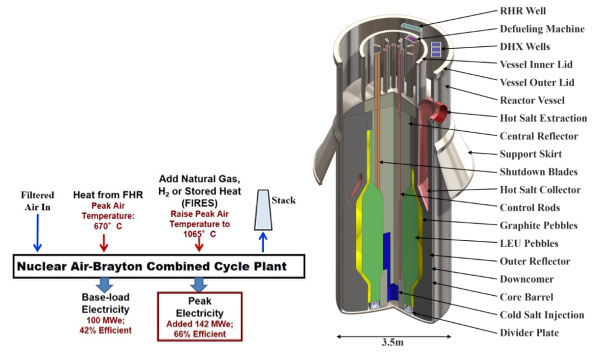Fluoride salt-cooled high temperature reactors (FHRs) under investigation at MIT offer a safer, potentially less expensive alternative to standard light water reactors. Since FHRs use a low-pressure coolant that does not boil off, and a robust ceramic fuel form that can withstand very high temperatures without leaking, they greatly reduce the risk of accidents and on-site releases of radioactivity. Made possible by recent advances in natural gas combined-cycle plants, FHRs can provide both baseload electricity and peak electricity via a topping cycle fueled either by natural gas or stored heat with incremental heat-to-electricity efficiencies higher than stand-alone natural gas plants. This makes FHRs an attractive new option for meeting the variable needs of a low-carbon world with improved economics.


